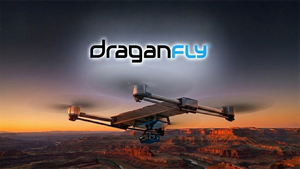- Development milestone achieved for SENS-501 (OTOF-GT) program with the submission of Clinical Trial Applications in the UK and in Europe
- GJB2-GT advancing towards IND-enabling activities after candidate selection
- Positive preliminary efficacy results of Proof-of-Concept Phase 2a clinical trial of SENS-401 to prevent residual hearing loss following cochlear implantation
- Completion of a private placement of €35million led by US-based healthcare investor, Redmile Group, and renewed support from existing shareholders, Invus and Sofinnova Partners; extended cash runway until the end of September 2024
Regulatory News:
Sensorion (FR0012596468 – ALSEN) a pioneering clinical-stage biotechnology company which specializes in the development of novel therapies to restore, treat, and prevent within the field of hearing loss disorders, announces its half-year results as of June 30, 2023, alongside its outlook for the remainder of 2023.
Nawal Ouzren, CEO of Sensorion, said: “Over the past few months, Sensorion has achieved several decisive milestones on its roadmap to develop solutions that will potentially improve the quality of life of patients suffering from hearing disorders. In August, in a difficult market environment, we succeeded in closing a major round of financing from international investors with unique gene therapy expertise. This deal strengthens our financial visibility and our stable, committed, and ambitious shareholder base. At the same time, we have made significant regulatory and operational progress with our most innovative programs, in particular SENS-501. We are positioned to bring our first gene therapy drug candidate into the clinic by mid-2024 and to reaffirm our ambition to rank among the leaders in a field which holds immense promise for patients suffering from genetic hearing loss, and which is attracting growing interest from the pharmaceutical industry. In parallel, building on the very promising clinical results unveiled in July, we are confidently pursuing the clinical development of SENS-401, with the support of our Australian partner Cochlear Limited. As we enter an extremely exciting period for Sensorion, I would like to thank all our shareholders, both individual and institutional, for their support and loyalty.”
Pipeline Highlights and Upcoming Milestones
During the first half of 2023, Sensorion continued to develop innovative therapies to restore hearing, to treat and prevent hearing loss to potentially transform the patients’ quality of life suffering from hearing loss disorders.
Gene Therapies for Hereditary Monogenic Hearing Loss
Sensorion continues to advance its gene therapy programs, developed as part of its collaboration with the Institut Pasteur. The framework agreement with the Institut Pasteur grants Sensorion an exclusive option to obtain exclusive licenses to develop and commercialize drug candidates in gene therapy for the restoration of hearing. The company has expanded its technical development capabilities over the period along with pilot-scale non-GMP (Good Manufacturing Practices) manufacturing capacity.
- SENS-501 (OTOF-GT): milestones achieved with Clinical Trial Application submissions to the UK’s MHRA and in Europe. First Patient Inclusion expected in H1 2024
Sensorion’s SENS-501 (OTOF-GT) dual AAV vector gene therapy development program aims at restoring hearing in patients with mutations in the OTOF gene, who suffer from severe to profound sensorineural prelingual non syndromic hearing loss. Otoferlin, the product of the OTOF gene, is a protein expressed in the inner hair cells (IHC) present in the cochlea and is critical for the transmission of the signal to the auditory nerve. Otoferlin deficiency related hearing loss is responsible for up to 8% of all cases of congenital hearing loss, with around 20,000 people affected in the US and Europe1.
SENS-501 previously received Orphan Drug Designation from the US Food and Drug Administration (FDA)2 and the European Medicines Agency (EMA)3 and Rare Pediatric Disease Designation from the FDA in Q4 2022, which support the medical plausibility and development plan of the Company’s lead gene therapy program.
In the first half of 2023, Sensorion achieved a major development milestone by completing the preclinical package, and successfully producing the GMP dual AAV OTOF-GT batches at 200L clinical scale. The production will enable the Company to cover the needs for the envisioned Phase 1/2 gene therapy clinical trial.
Following the positive feedback from regulatory agencies EMA, ANSM (French National Agency for Medicines and Health Products Safety) and the UK’s MHRA (Medicines and Healthcare product Regulatory Agency), Sensorion has submitted a Clinical Trial Application (CTA) to initiate a Phase 1/2 clinical trial of SENS-501 to the UK’s MHRA on July 10, 2023, and in Europe on July 19, 2023.
In parallel, Sensorion submitted a Medical Device Application for the injection system. This injection device is intended at administering gene therapy into the cochlea for the envisioned Phase 1/2 clinical trial. In the framework of the medical device development, Sensorion is collaborating with Eveon, a company specialized in designing and manufacturing custom medical devices for the preparation and delivery of drugs.
The Company expects the first CTA approval by end of 2023 and subsequent CTA approvals as early as H1 2024. Inclusion of the first patient is expected within H1 2024.
OTOCONEX, the Company’s Natural History Study to document the natural course of disease progression in otoferlin deficiency patients and in children with hearing loss related to GJB2 mutations, is running across Europe.
- GJB2-GT accelerating IND-enabling studies towards clinical development
Sensorion's GJB2 gene therapy program, developed in collaboration with the Institut Pasteur, has the potential to address three pathologies related to GJB2 mutations: early onset of presbycusis in adults, progressive forms of hearing loss in children, and pediatric congenital deafness. Although the types of GJB2 mutations in children and adults may differ, gene therapy offers potential solutions for both.
In April 2023, Sensorion announced the candidate selection for GJB2-GT during its R&D Day focusing on gene therapy. The candidate designed with a specific adeno-associated virus (AAV) capsid safely targets key cells in the ear that normally express GJB2. A replay of the R&D Day is available in the “Past Events” section of the Company’s website.
Sensorion has acquired bioreactors and has initiated the non-GMP process development of the GJB2 candidate up to 50L scale. Process and analytical methods will be transferred to the CDMO for the GMP production of the clinical batch. Sensorion is advancing the candidate into IND-enabling activities for future clinical development.
SENS-401
Sensorion is developing SENS-401 (Arazasetron) in two Proof of Concept Phase 2a clinical trials. The first one is designed to assess SENS-401 for residual hearing preservation following cochlear implantation in partnership with Cochlear Limited, and the second one is a proof-of-concept trial to prevent Cisplatin-Induced Ototoxicity (CIO).
SENS-401 is an orally available small molecule that aims to protect and preserve inner ear tissue from damage responsible of hearing impairment. SENS-401 has been granted Orphan Drug Designation by the EMA in Europe for the treatment of sudden sensorineural hearing loss (SSNHL), and by the FDA in the U.S. for the prevention of platinum-induced ototoxicity in pediatric population.
- Milestone achieved for SENS-401 to prevent residual hearing loss after cochlear implantation with positive preliminary efficacy data. Final data readout planned in H1 2024
Sensorion is advancing its small molecule SENS-401 in a multicentric, randomized, controlled open label Phase 2a trial aimed at evaluating the presence of SENS-401 in the cochlea (perilymph) after 7 days of twice-daily oral administration in adult patients prior to cochlear implantation due to moderately severe to profound hearing impairment. Patients start treatment with SENS-401 7 days before implantation and continue to receive SENS-401 for a further 42 days.
In June 2023, Sensorion disclosed preliminary data from the Phase 2a study showing SENS-401 presence in the perilymph of all 5 adult patients treated with the product. Levels of SENS-401 were considered consistent with potential therapeutic effects after 7 days of repeated oral treatment.
In July 2023, Sensorion reported further analysis during its KOL webinar suggesting that SENS-401 treated patients demonstrated a clinically significant 21 dB improvement in the preservation of their residual hearing compared to the control group 6 weeks after cochlear implantation at 500 Hz. Indeed, in the SENS-401-treated group (N=5), the loss of residual hearing was only 12 dB, contrasting with a larger loss of 33 dB observed in the control group of 4 participants not treated with SENS-401. These preliminary and promising findings reinforce the hypothesis that SENS-401, by crossing the labyrinthine barrier to reach the cochlear compartment, has a positive effect on the preservation of residual hearing.
Sensorion anticipates the publication of the POC Phase 2a clinical trial of SENS-401 final data in H1 2024.
- Progressing on SENS-401 in Cisplatin-Induced Ototoxicity (CIO)
Cisplatin and other platinum compounds are essential chemotherapeutic agents for many malignancies. Unfortunately, platinum-based therapies cause ototoxicity, or hearing loss, which is permanent, irreversible, and particularly harmful to 50-60% of adult patients and 90% of pediatric patients who survive cancer.
The NOTOXIS clinical trial application was approved in 2022 following further analysis of the AUDIBLE-S study data, Sensorion’s Phase 2 study of SENS-401 which was completed in Sudden Sensorineural Hearing Loss (SSNHL) in January 2022.
The exploratory Phase 2a, multicenter, randomized, controlled, open-label study, NOTOXIS, aims at evaluating the efficacy of SENS-401 to prevent ototoxicity induced by cisplatin in adult patients with a neoplastic disease. The trial also assesses several outcome measures, including the rate and severity of ototoxicity, the change in Pure Tone Audiometry (PTA) (dB) throughout the study and the tolerance.
The first patient was enrolled in December 2022 and Sensorion anticipates the publication of the preliminary results in H2 2023.
Expected future milestones
- H2 2023 – SENS-401 CIO: NOTOXIS Phase 2a preliminary results
- H2 2023 – OTOF-GT: First CTA Approval
- H1 2024 – SENS-401 in combination with cochlear implantation: Final proof-of-concept Phase 2a clinical data readout
- H1 2024 – OTOF-GT: First Patient Inclusion
- GJB2-GT: Ongoing IND-enabling preclinical activities
First-half 2023 financial highlights
- Cash Position
Cash & Cash Equivalents amounted to €14.4million as of June 30, 2023, compared to €26.2 million as of December 31, 2022.
- Research And Development (R&D) Expenses
R&D expenses increased by 11% from €11.1 million in H1 2022 to €12.3m in H1 2023, primarily due to an increase in gene therapy programs with OTOF-GT CTA-enabling activities.
- General And Administrative (G&A) Expenses
G&A expenses were €2.6 million for half-year 2023, compared to €3.0 million for the same period in 2022.
- Net Loss
Net loss was -€12.3 million for half-year 2023, at the same level as for half-year 2022.
- Financial guidance
Based on its forecasted expenses, the cash position of €14.4 million as of June 30, 2023, together with the €35 million proceeds received from the August private placement, the Company expects to be able to fund its operations until end of Q3 2024.
Financial structure
The annual accounts on June 30, 2023, drawn up according to IFRS standards and approved by the Board of Directors on September 18, 2023.
The simplified income statement as of June 30, 2023, is as follows:
In Euros – IFRS standards |
30.06.2023 |
|
30.06.2022 |
|
Operating income |
2.647.410 |
|
1.901.426 |
|
Research & Development expenses |
-12.271.319 |
|
-11.079.153 |
|
General & Administrative expenses |
-2.572.414 |
|
-3.037.382 |
|
Total operating expenses |
-14.843.733 |
|
-14.116.535 |
|
Operating loss |
-12.196.324 |
|
-12.215.108 |
|
Financial result |
130.452 |
|
-49.383 |
|
Net loss |
-12.287.783 |
|
-12.264.491 |
The simplified balance sheet as of June 30, 2023, is as follows:
In Euros – IFRS standards |
30.06.2023 |
31.12.2022 |
||
Non-current Assets |
3.188.770 |
3.175.915 |
||
Other Current Assets |
9.900.707 |
9.565.307 |
||
Cash & cash equivalent |
14.447.336 |
26.203.905 |
||
Total Assets |
27.536.812 |
38.945.127 |
||
Equity |
9.865.173 |
21.885.121 |
||
Non-current Liabilities |
3.047.808 |
3.467.116 |
||
Current Liabilities |
14.623.832 |
13.592.890 |
||
Total Liabilities |
27.536.812 |
38.145.127 |
First-Half 2023 certified accounts
On September 18th, 2023, the Board of Directors approved the Company’s first half-year results as of June 30, 2023. The Half-Year Financial Report can be found on Sensorion’s website (https://www.sensorion.com/en/home/) in the investor section under financial information. The first-half year accounts of 2023 have been subject to a limited review by the Company’s statutory auditors and an unqualified report is being issued.
About Sensorion
Sensorion is a pioneering clinical-stage biotech company, which specializes in the development of novel therapies to restore, treat, and prevent hearing loss disorders, a significant global unmet medical need. Sensorion has built a unique R&D technology platform to expand its understanding of the pathophysiology and etiology of inner ear related diseases, enabling it to select the best targets and mechanisms of action for drug candidates.
It has two gene therapy programs aimed at correcting hereditary monogenic forms of deafness, developed in the framework of its broad strategic collaboration focused on the genetics of hearing with the Institut Pasteur. OTOF-GT targets deafness caused by mutations of the gene encoding for otoferlin and GJB2-GT targets hearing loss related to mutations in GJB2 gene to potentially address important hearing loss segments in adults and children. The Company is also working on the identification of biomarkers to improve diagnosis of these underserved illnesses.
Sensorion’s portfolio also comprises clinical-stage small molecule programs for the treatment and prevention of hearing loss disorders.
Sensorion’s clinical-stage portfolio includes one Phase 2 product: SENS-401 (Arazasetron) progressing in a planned Phase 2 proof of concept clinical study of SENS-401 in Cisplatin-Induced Ototoxicity (CIO) and, with partner Cochlear Limited, in a study of SENS-401 in patients scheduled for cochlear implantation. A Phase 2 study of SENS-401 was also completed in Sudden Sensorineural Hearing Loss (SSNHL) in January 2022.
Label: SENSORION
ISIN: FR0012596468
Mnemonic: ALSEN
Disclaimer
This press release contains certain forward-looking statements concerning Sensorion and its business. Such forward looking statements are based on assumptions that Sensorion considers to be reasonable. However, there can be no assurance that such forward-looking statements will be verified, which statements are subject to numerous risks, including the risks set forth in the 2022 full year financial report published on March 30, 2023, and available on our website and to the development of economic conditions, financial markets and the markets in which Sensorion operates. The forward-looking statements contained in this press release are also subject to risks not yet known to Sensorion or not currently considered material by Sensorion. The occurrence of all or part of such risks could cause actual results, financial conditions, performance, or achievements of Sensorion to be materially different from such forward-looking statements. This press release and the information that it contains do not constitute an offer to sell or subscribe for, or a solicitation of an offer to purchase or subscribe for, Sensorion shares in any country. The communication of this press release in certain countries may constitute a violation of local laws and regulations. Any recipient of this press release must inform oneself of any such local restrictions and comply therewith.
1 Rodríguez-Ballesteros M, et al., . A multicenter study on the prevalence and spectrum of mutations in the otoferlin gene (OTOF) in subjects with nonsyndromic hearing impairment and auditory neuropathy. Hum Mutat. 2008 Jun;29(6):823-31. doi: 10.1002/humu.20708. PMID: 18381613.
2 FDA Orphan Drug Designations and Approvals https://www.accessdata.fda.gov/scripts/opdlisting/oopd/listResult.cfm
3 EU Community Register of orphan medicinal products https://ec.europa.eu/health/documents/community-register/html/o2698.htm
View source version on businesswire.com: https://www.businesswire.com/news/home/20230919767340/en/
Contacts
Investor Relations
Noémie Djokovic, Investor Relations and Communications Associate
ir.contact@sensorion-pharma.com
Press Relations
Ulysse Communication
Pierre-Louis Germain / 00 33 (0)6 64 79 97 51
plgermain@ulysse-communication.com
Bruno Arabian / 00 00(0)6 87 88 47 26
barabian@ulysse-communication.com






